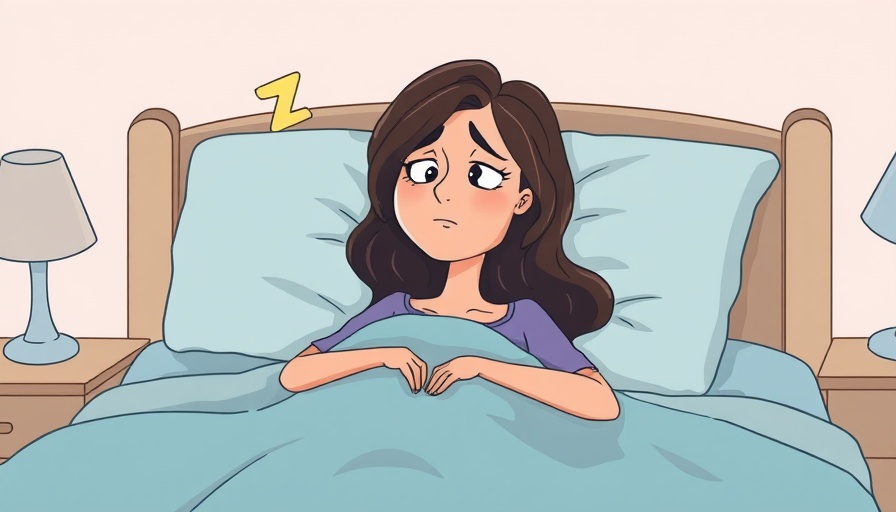
The Hidden Struggles of Women and Sleep
Many women wrestle with sleepless nights, and research supports that they experience insomnia at much higher rates than men. Sleep is essential for overall health—it's when our bodies reset and recharge. Christian F. Nunes, President of the National Organization for Women (NOW), emphasizes the importance of sleep, stating, "Sleep health is very important; it is rest for our bodies and for our brains." Without adequate rest, both mental and physical wellbeing can suffer.
Why Women Struggle More with Sleep
Three key factors contribute to women's sleep difficulties:
- Hormonal Changes: Women's bodies undergo various hormonal shifts throughout their lives which can disrupt sleep patterns, especially during puberty, pregnancy, and menopause.
- Caregiver Responsibilities: Many women balance work with the demands of caregiving, leading to fragmented sleep as they attend to their children’s needs during the night.
- Mood Disorders: Women are more prone to stress and anxiety, both of which can spiral into insomnia and chronic sleep problems.
Common Sleep Disorders Affecting Women
Nunes identifies specific issues that plague many women:
- Insomnia: A common issue characterized by persistent difficulty falling asleep or maintaining sleep.
- Sleep Apnea: This serious condition can cause interruptions in breathing during sleep.
- Restless Leg Syndrome: Often keeping women awake, this neurological condition forces involuntary leg movements at night.
Simple Solutions to Improve Sleep
If you're struggling with sleep, practical solutions can make a significant difference. Establishing a solid sleep routine, reducing caffeine intake, and creating a tranquil sleeping environment can facilitate better sleep. Nunes suggests taking straightforward steps that lead to falling asleep faster and waking up refreshed. The journey to better sleep doesn’t require drastic changes; small tweaks can yield substantial results.
 Add Row
Add Row  Add Element
Add Element 



 Add Row
Add Row  Add
Add 
Write A Comment